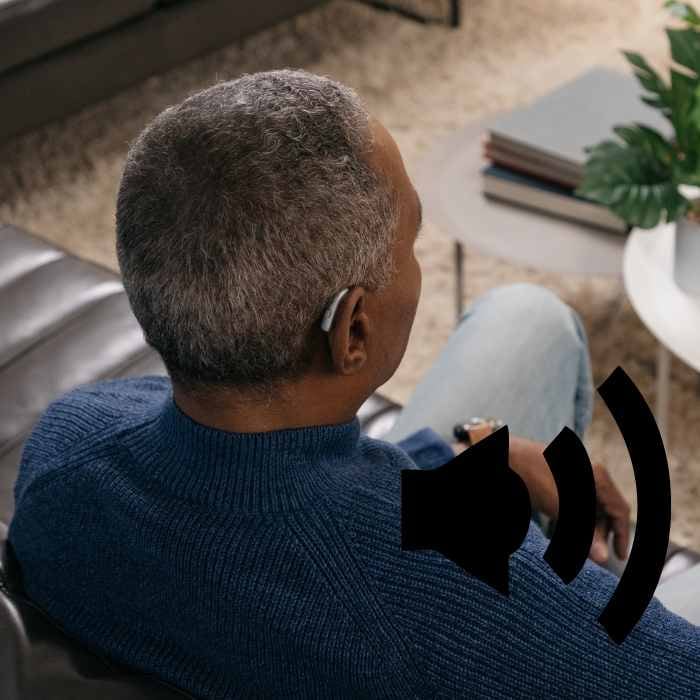Tinnitus is a common condition that affects millions of people worldwide. If you have a buzzing, hissing, or ringing sound in the ear, you may be wondering about ways to provide relief.
As an audiologist, I’ve met many folks who experience bothersome tinnitus. Patients often ask me questions like:
- How can I find relief?
- Can my hearing aids help with tinnitus?
- How does adding more sound to my ear help decrease the ringing in my ears?
Okay so—adding more sound can help, even if it does seem counterintuitive (and I’ll share more details on that below). Which means that for people with hearing loss, these hearing devices can help alleviate symptoms, too.
Keep scrolling to read about hearing aids and tinnitus, the science behind it, and hearing aid brands that can support your needs.
What is tinnitus?
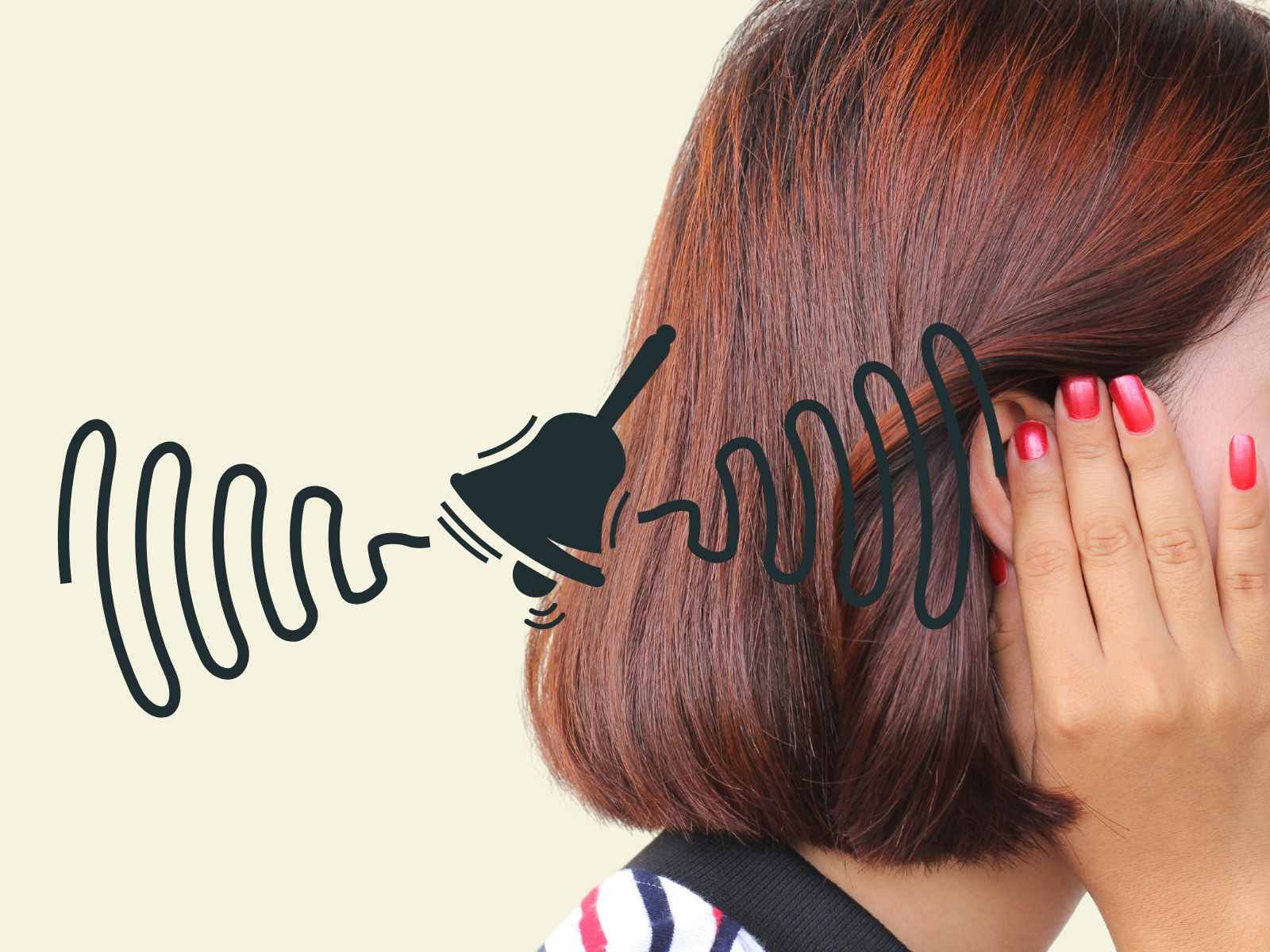
Tinnitus is when you perceive sounds that are not present in your external environment. Sometimes it sounds like ringing, but it can also sound like crickets, humming, whistling, crackling, or other sounds.
Tinnitus is a symptom and it can be caused by a variety of conditions like hearing loss, inner ear damage, earwax build up, infections, or Ménière's disease. However, tinnitus is often a symptom of underlying hearing loss.
For some patients, tinnitus can be bothersome and interfere with concentration. While the perception of tinnitus varies for everyone, most people find that tinnitus worsens in quiet settings.
How does hearing loss contribute to tinnitus?

The majority of tinnitus sufferers have some degree of hearing loss, so we’ll look at some of the mechanisms behind this process.
Most of us hear best in childhood and early adulthood; so, over time noise exposure, genetic predisposition, medical conditions, or other factors cause our hearing to change or worsen as we age.
But, the brain craves the sound that it used to hear. High frequency hearing is more prone to damage over time, due to the shape of the cochlea. In order to satisfy the brain’s desire to hear those sounds, over time the brain changes the neural firing rate, even at rest.
The result? A high-pitched sound perception, even when the room is completely silent. While the result can be irritating or annoying, the brain is merely trying to compensate for the lack of sound it receives at certain frequencies.
Hearing Aids Satisfy the Brain

Hearing aids can effectively help tinnitus sufferers by stimulating the brain with targeted amplification according to your hearing loss.
When the brain receives the sound it craves, it may lessen your tinnitus perception. Why is that?
- The tinnitus sound will most commonly originate from the region on the audiogram with the most hearing loss.
- For example, high-frequency hearing loss often causes a high-frequency ringing, hissing, or buzzing sound.
- The brain compensates for the sound it previously heard by generating tinnitus.
So, when a hearing aid is programmed to amplify the high frequencies in the region of hearing loss, over time, the brain starts to reduce the tinnitus. While it can take time to reduce the tinnitus, many patients notice that it lessens over time with regular hearing aid use.
Masking and Customized Programs
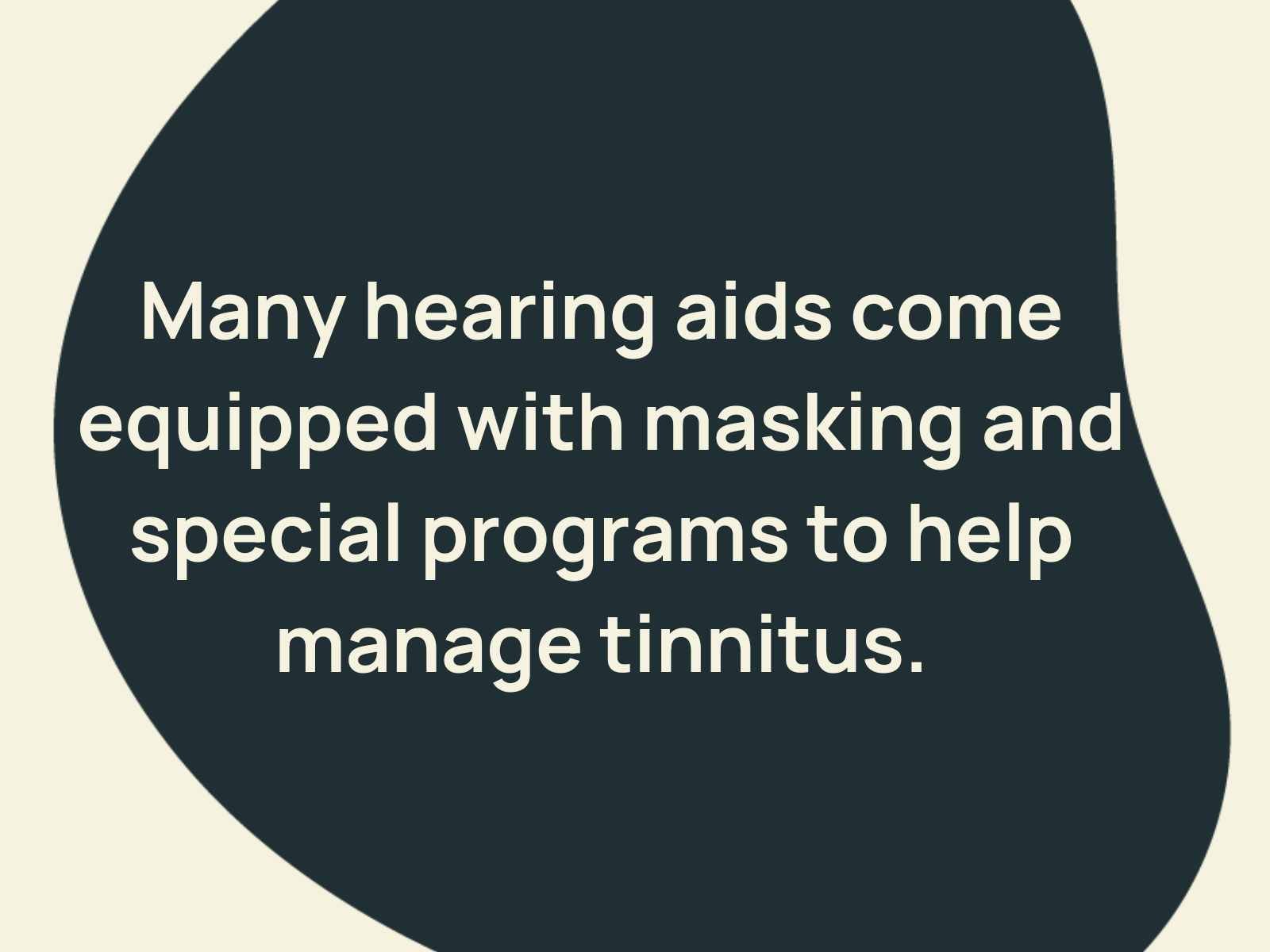
In addition to amplifying external sounds, hearing aids come equipped with masking and special programs to help manage tinnitus.
Masking is accomplished with a sound, such as white noise or nature sounds, to help the tinnitus blend into the background. It works exceptionally well when it is similar in frequency to the tinnitus, effectively covering the tinnitus sound.
Additionally, special programs allow people to customize their hearing aid settings to their specific tinnitus needs.
For example, some programs offer functionality to mix or create masking sound blends for optimal distraction and alleviation from tinnitus. The best masking sounds for your tinnitus will vary based on your preferences and the quality of your tinnitus.
If you’re looking for some options to try, consider the GN Resound Tinnitus Relief app. It allows you to try various sounds, individually or in combination, and find what works best for you.
Best Brands for Tinnitus Management
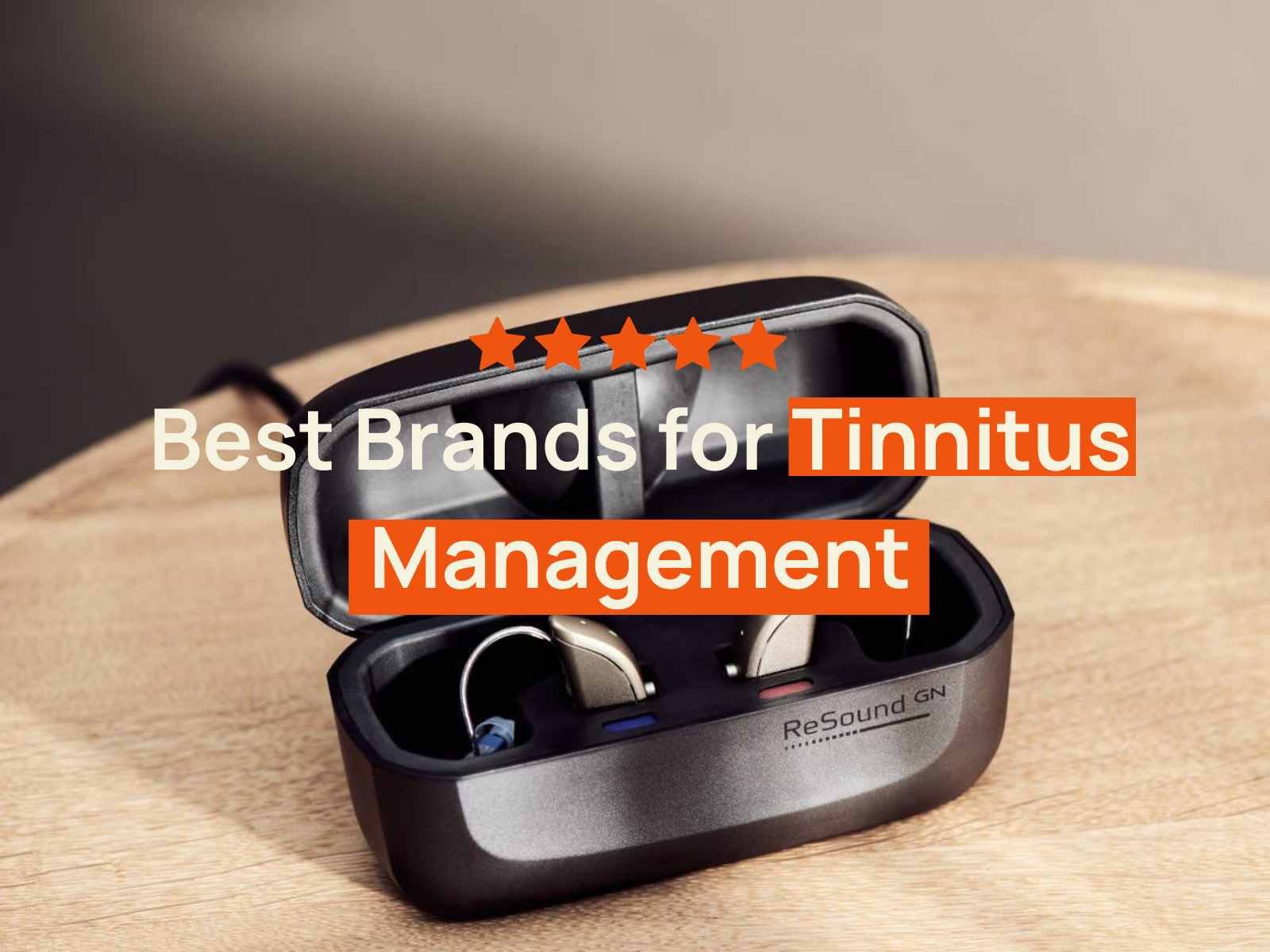
So, where do you start with tinnitus management and hearing aids? There are quite a few options to consider as each brand below has its own customizable programs for tinnitus management.
To begin, any well-fit hearing aid can function as part of a tinnitus management approach with or without tinnitus masking programs. Part of reducing tinnitus perception includes adjusting to wearing hearing aids, which requires some patience and regular, consistent use to achieve the best outcomes.
Widex
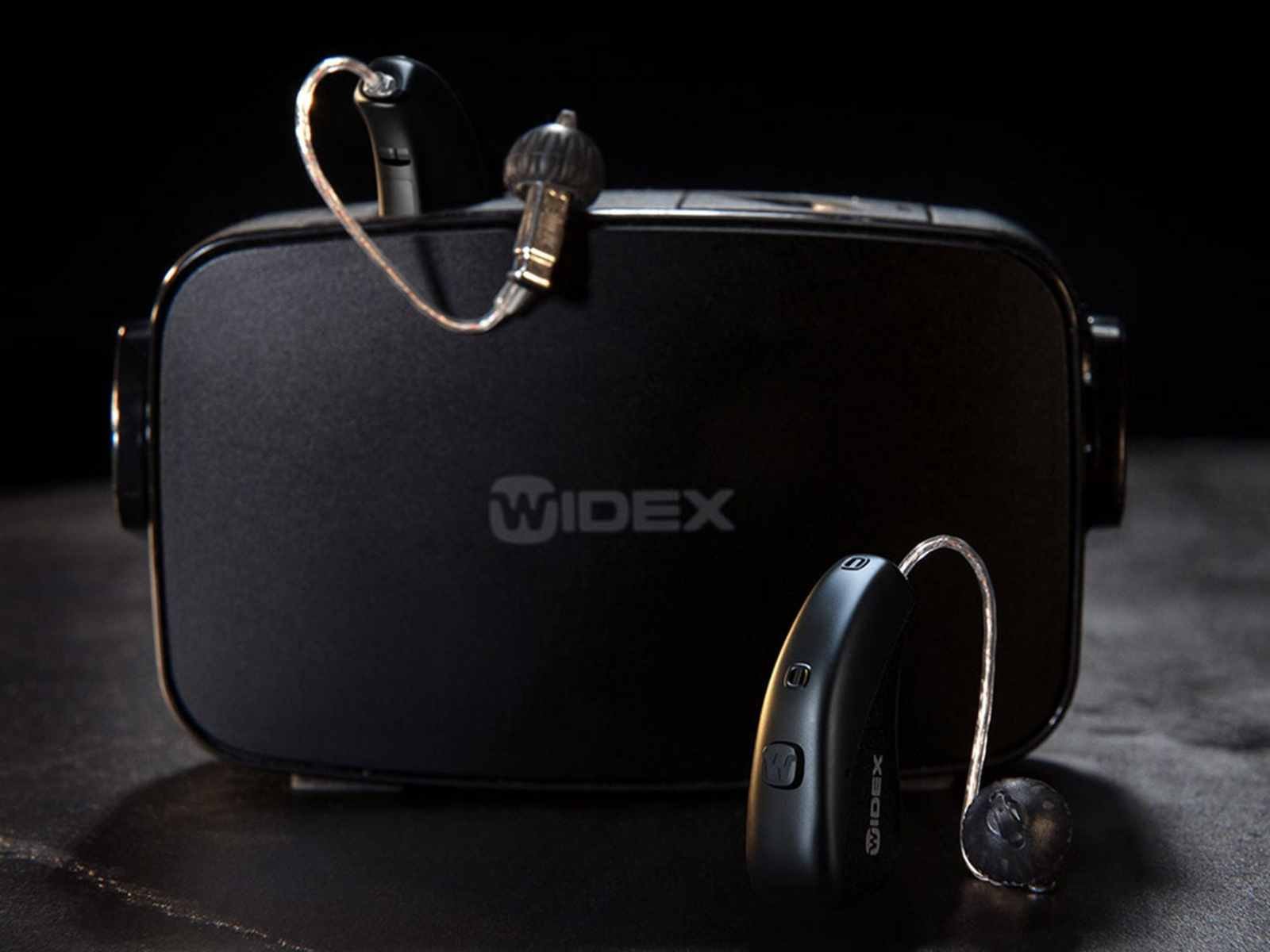
Widex is a well-known hearing aid brand renowned for tinnitus management.
Widex has developed a unique tinnitus management system called Zen Therapy, which uses soothing sounds to help patients manage the condition. Known for their tinnitus management sounds that resemble wind chimes (aka, fractal tones), they offer a range of soothing sounds to help with tinnitus.
Widex hearing aids are known for their mellow, smooth sound quality. Read more about the Widex Moment Sheer here, and the accompanying Smartphone app here.
GN ReSound
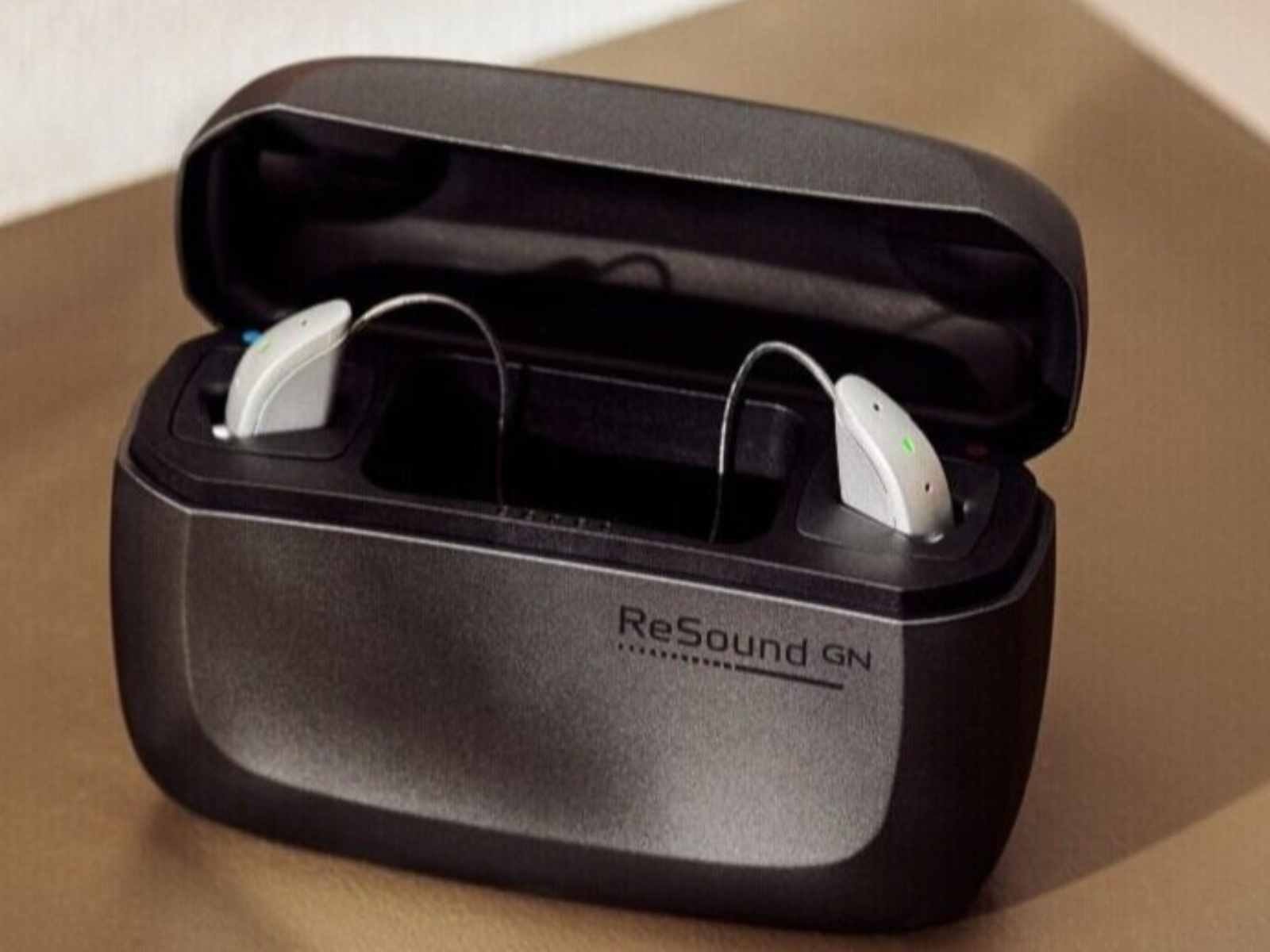
Another great option for tinnitus management? GN ReSound. The brand’s tinnitus app is a fan favorite, due to its variety of soothing sounds to help mask tinnitus.
These hearing aids offer a variety of customization options, and your hearing healthcare professional can create custom masking programs for you in GN ReSound’s programming software.
As for their sound quality, GN ReSound hearing aids have a bright sound quality and impressive background noise management. Read more about the GN ReSound OMNIA here, and ReSound Smartphone apps here.
Phonak
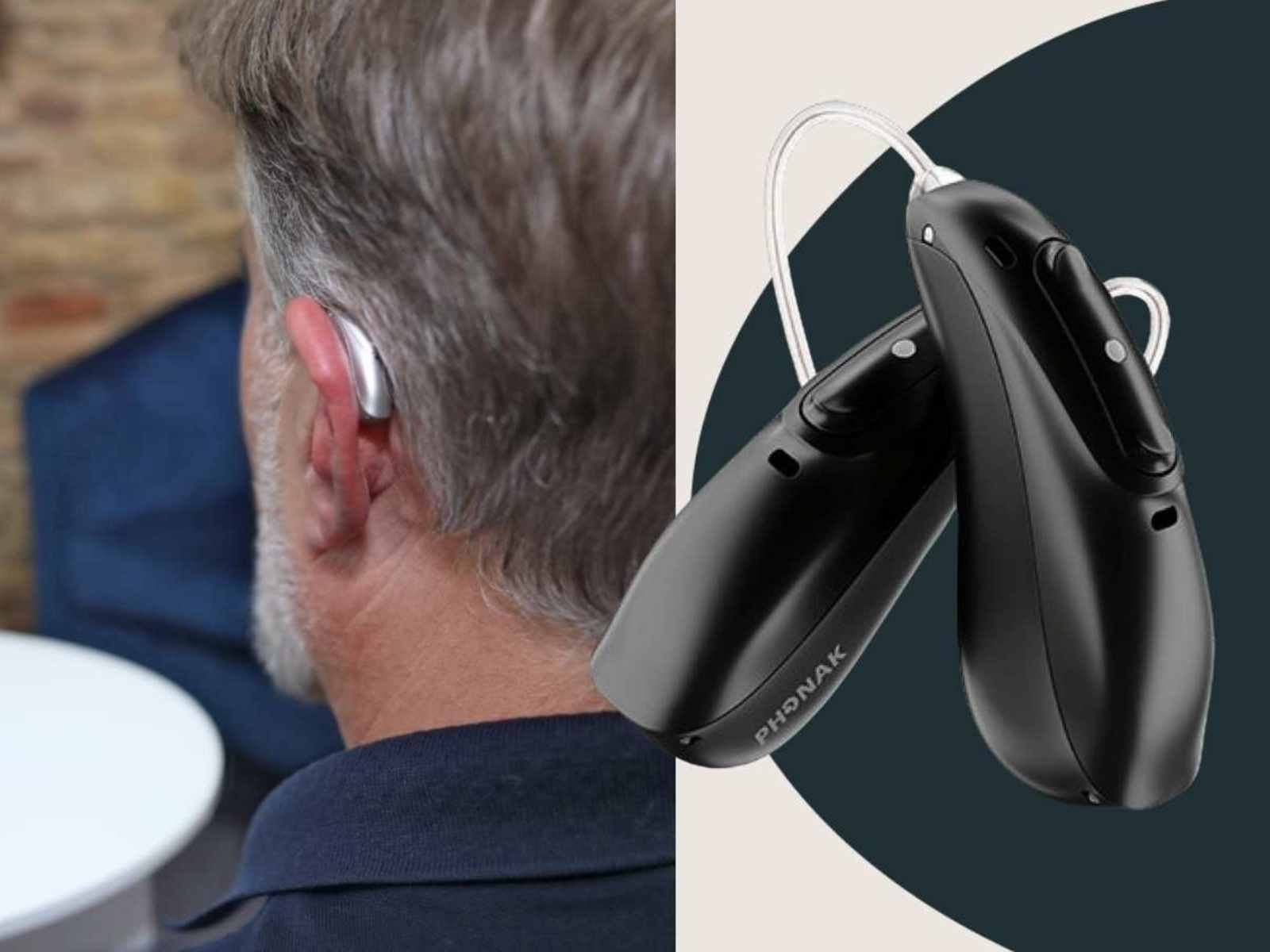
Phonak is another brand that offers tinnitus programs and masking program options a hearing care professional can customize.
Your hearing healthcare provider can create a custom tinnitus masking program for you and tweak your settings to your needs. Big on streaming? If you like to connect to multiple Bluetooth devices or have an Android phone, Phonak is a great option for you.
Now, let’s talk about sound quality. Phonak’s sound quality has a sharp, percussive with crisp, clear sound. If you’d like to learn more about Phonak Lumity, take a look here and read more about Phonak apps here.
Conclusion
In summary, hearing aids can significantly help tinnitus sufferers by treating hearing loss that contributes to tinnitus, masking, and custom tinnitus programs. With the right hearing aids and support, you can take control of your tinnitus.
Summary Points:
- When it comes to choosing the right hearing aid brand for tinnitus management, consider your lifestyle and needs to ensure the hearing aid is the right fit for you.
- With the right hearing aid, tinnitus sufferers can experience a better quality of life, allowing them to sleep better, focus better, and enjoy life.
- There's no one-size-fits-all solution, so it's essential to consult a hearing specialist and explore options.



